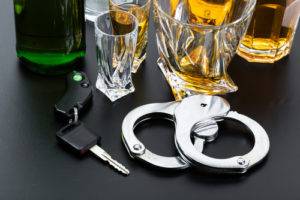Legally Reviewed By:
Brian P. Gabriel, Esquire

Many people believe that refusing to take a breath or blood test after they’re stopped for DUI will help them avoid the tough penalties that follow a DUI conviction. While it helps to keep evidence against you out of the hands of the prosecution, avoiding BAC tests carries its own repercussions.
Due to implied consent laws, the State of Florida expects drivers to submit to chemical tests that measure their blood alcohol content when police officers lawfully ask for them. A police officer may request a blood, breath, or urine sample when he or she has reasonable suspicion that a driver may be under the influence. Although it’s the law to submit to these tests, many drivers refuse them. This leads to administrative penalties, and multiple refusals could also lead to criminal consequences. If you’re ever inclined to refuse a BAC test, your lawyer might be able to help you avoid consequences for trying to protect yourself.
Why do people avoid BAC tests?
Even though the law states that drivers must submit to testing because they consented when they applied and signed for their Florida driver’s license, many people refuse to do so when they’re suspected of DUI. There is some reasoning behind this — the prosecution obtains what is considered credible evidence that may be used against you in court when you submit to testing. A person who believes they will fail the test by blowing a 0.08 or higher might choose to avoid it, because without that breath result, their DUI case might have a better chance of being dismissed.
However, prosecutors may use your refusal against you by claiming you had a guilty conscience and knew you’d fail the breath test when you refused. In this way, refusing to blow or give blood could hurt you in court. Still, this is usually less effective for prosecutors seeking a conviction than showing the court a test result of 0.08 or higher.
There are also instances in which people do not flat out refuse to take a breath test, but the arresting officer claims they did anyway. This may occur when:
- The suspect is incapable of producing two samples of their breath of sufficient quantity within the allowed time period.
- The suspect produces two samples of breath that are more than .02 apart and then refuses to provide a third breath sample.
- The suspect argues with the police officer issuing the BAC test.
Penalties for Refusing Chemical Tests in Florida
The first time you refuse a chemical test in Florida, you face a mandatory license suspension of one year. The officer will take your license when he issues you a citation for DUI and another one for refusing to take a test. You will be subject to that suspension whether or not you’re ultimately convicted of DUI. You may be eligible for a hardship license during this one-year period; however, there is a 90-day “no mercy” time frame in which you are ineligible for any type of hardship license.
If you refuse to take a chemical test for the second time, you may face a first-degree misdemeanor charge in addition to any alcohol charges. You may face up to one year in jail, a fine of up to $1,000, and you’ll be ineligible for a hardship license during an 18-month license suspension. If you were stopped for DUI and refused to blow into the roadside breathalyzer or the Intoxilyzer 8000, contact an attorney as soon as possible.
How Can I avoid penalties for refusing a BAC test?
An experienced DUI lawyer will know how to defend a BAC test refusal. There are an array of creative and technical methods that have been proven to succeed. Some of your options for defense include:
- Lack of Compliance: It’s possible to have a BAC refusal charge dismissed if the arresting officer did not comply with implied consent laws. An example of this could be if the officer didn’t have probable cause to subject you to BAC tests.
- Implied Consent Warning Not Issued: The arresting officer must read you a warning before you blow into the Intoxilyzer. If the officer skips this warning or reads the statute information incorrectly, it may be possible to have your charge dismissed.
- Confusion Doctrine: Did the officer read you your Miranda Rights before issuing a breath test? If he did so around the same time as the Implied Consent Warning, you may have become confused about what your rights are. Miranda informs you of your right to an attorney before you say anything that might be used against you. Your Miranda rights, however, do not protect you from blowing breath that could produce incriminating evidence.
Contact The Law Office of Gabriel & Gabriel to Protect Your Rights in a DUI Trial
If the court dismisses your refusal to take a BAC test, it might mean that you’re still on the hook for a DUI. If you’re successful at defending the DUI, you may be free to go without risking your Florida driver’s license. Contact attorney Brian Gabriel of The Law Office of Gabriel & Gabriel to discuss your DUI and BAC test refusal charges. The sooner Brian can be involved in your case, the more opportunities he will have to negotiate your charges with prosecutors.
Brian Gabriel has provided competent DUI defense for more than 30 years in Palm Beach County, and his aim is always to achieve the best possible result for every client. For a free consultation, call 561-622-5575 or complete a contact form.



